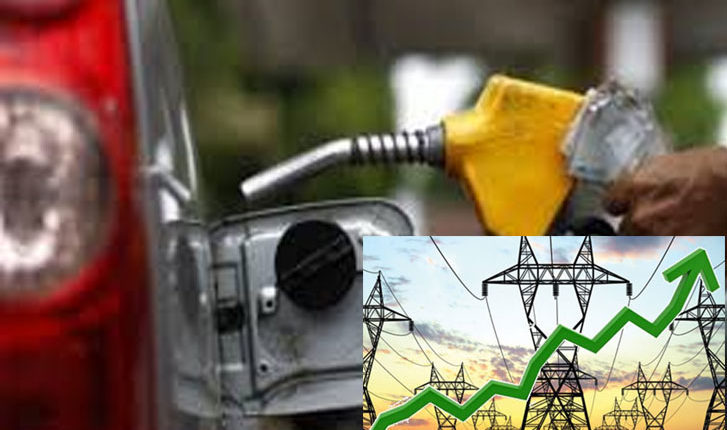LAGOS – The removal of energy subsidies, increase in electricity tariff, as well as exchange rate challenges may trigger inflationary pressures on consumer goods and services in the last quarter of 2020, analysts have said.
According to the Consumer Price Index (CPI) report published last week, the analysts also attributed the pressure on consumer prices in August 2020 that made headline inflation to increase to 13.2% y/y from 12.8% in July to be partly due to disruptions in the agriculture value chain due to COVID-19 and persistent insecurity.
It would be recalled that annual inflation in Nigeria rose in August for the 12th month in a row, reaching a more-than two-year high as the coronavirus pandemic disrupted the supply of goods and services.
Inflation climbed to 13.22% last month from 12.82% in July, the National Bureau of Statistics said.
In August 2020, all items index on year on year basis was highest in Kogi (17.29%), Bauchi (15.77%), and Ebonyi and Yobe (14.71%), while Lagos (11.45%), Kwara (11.22%) and Abuja (11.17%) recorded the slowest rise in headline year on year inflation.
On month on month basis, however, all items inflation was highest in Ondo (2.20%), Ogun (2.07%) and Abia (1.87%), while Plateau (0.72%), Zamfara (0.60%) and Sokoto (0.54%) recorded the slowest rise in headline month on month inflation.
In August 2020, food inflation on a year on year basis was highest in Kogi (22.03%), Kwara (19.11%) and Edo (17.95%), while Gombe (14.33%), Kano (13.99%) and Bauchi (13.42%) recorded the slowest rise.
On month on month basis, however, food inflation was highest in Ogun (3.27%), Lagos (3.13%) and Abia (2.81%), while Plateau (0.67%), Zamfara (0.24%) and Sokoto (0.13%), recorded the slowest rise.
Prices increased in August across the range of goods and services, rising more in cities than in rural areas, the NBS report said.
The sharp increase in headline inflation, according to the report,was driven by a faster m/m inflation, which was up 10bps to 1.3%, the highest since June 2017.
The m/m rise in headline inflation in August 2020 was driven by pressure from the food index. Food inflation maintained its relentless rise, increasing to 16.0% y/y from 15.5% in July 2020 – the highest since March 2018.
This was driven by the m/m increase in the food index to a 38-month high of 1.7% from 1.5% in July. Imported food inflation also rose to 16.6% in August from 16.5% in July, although the m/m movement was unchanged at 1.3%.
Dr. Muda Yusuf, Director General of Lagos Chamber of Commerce and Industry (LCCI), in an exclusive interview with DAILY INDEPENDENT, while reacting to the increase in headline inflation, said the mounting inflationary pressure is expected given the prevailing economic and business conditions.
Yusuf, who argued that prices increased in August across the range of goods and services, rising more in cities than in rural areas, from NBS report said: “We are experiencing sharp depreciation in the naira exchange rate which has significant implications for prices, given the import dependent nature of the economy.
“Agricultural output is constrained by worsening insecurity in many farming communities around the country. Energy prices are putting enormous pressure on production and operating costs. Distribution costs remain high, driven by logistics challenges across the country. There are also climate change issues. These are the key drivers of inflation.”
Yusuf, who recalled that the Federal Government expects the economy this year, however, said: “The conseto contract by as much as 8.9 percent quences of mounting inflationary pressures are worsening poverty conditions as purchasing power diminishes high operating costs and erosion of profit margins.”
But Bismark Rewane, in a recent television interview on outlook for the last quarter of the year as a result of the 5% increase in electricity tariff and 10 % increase in petroleum products, which affect tax on consumers and investment, said the increases had an impact on the Federal Government and also on consumers and investment.
Rewane, who also argued that inflation is going to rise a little more before moderating, said: “Generally speaking, the increases is bringing up the alignment in resource allocation in Nigeria and, more importantly, is the fact that subsidy, which is a reverse practice, is reduced so that the government will now have more revenue to provide services for the people.
READ ALSO: FCTA Set To Reposition Fire Service
“As long as the government resources are used to provide services to the people, the subsidy is reduced, that is what we have now,” he said.
According to Rewane, “In the last two years, the average change in the price for the key products was 64% and the highest is garri, which has gone from N7,000 to N16,000, which is 100%, and the lowest is flour, which has gone from N8,00 to N13,000.
The Director General of Nigeria Employers’ Consultative Association (NECA), Dr. Timothy Olawale, in a discussion with DAILY INDEPENDENT, said the NBS Consumer Price Index report, August 2020, is a reflection that the misery and hardship being faced by Nigerians are set to increase following the rise.
“However, this calls for more strategic reasoning from the monetary authority in making expansionary measures, most expectedly, from its planned Monetary Policy Committee meeting scheduled for next week, in addressing the challenging situation,” he said.
Source: Independent




